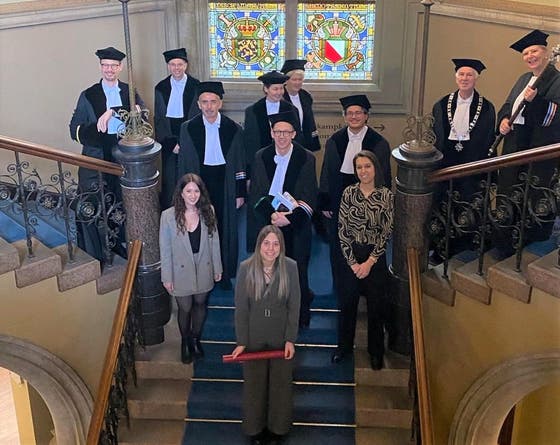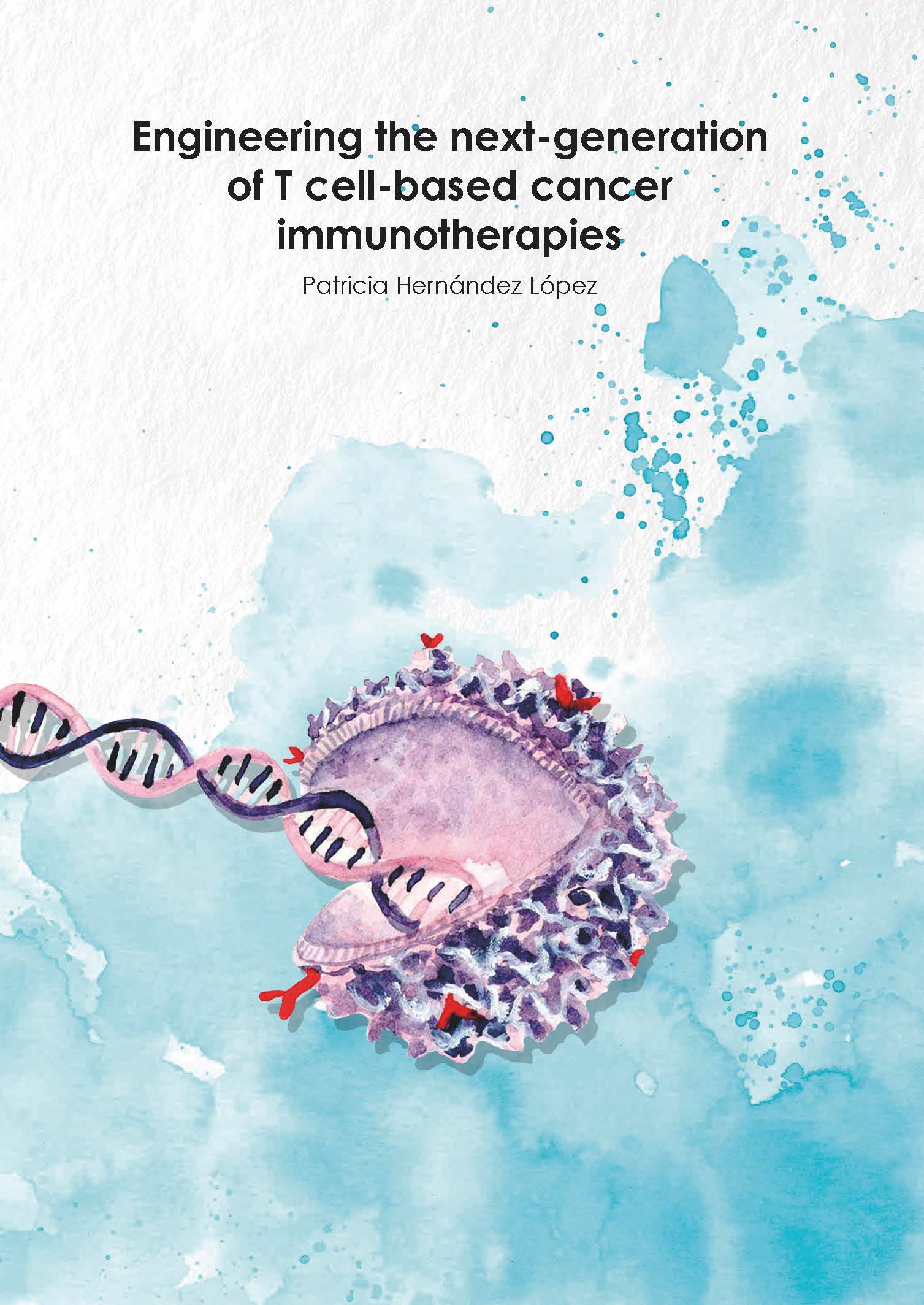Feb 19: Engineering the next-generation of T cell-based cancer immunotherapies

By developing the novel concept of bispecific molecules as well as by improving the potency and purity of investigational T cell based cancer immunotherapies, in her PhD research Patricia Hernández-López (UMC Utrecht) provided new insights for development and improvement of γδ-TCR and αβ-TCR based therapies.
T cells play a crucial role in the immune system by protecting against infections and participating in the body’s response to cancer. Therefore, T cells are being explored in the immunotherapy field as new therapeutic agent against cancer. There are two different types of T cells: αβ T cells and γδ T cells. They are named after a membrane receptor called TCR, that is responsible for recognizing infected cells or tumor cells. αβ T cells contain an αβ-TCR while γδ T cells have a γδ-TCR. As they contain different TCR types, they recognize infected or tumor cells in a different way: γδ T cells often recognize infected or tumor cells directly, by sensing metabolic alterations that typically occur in these cells, while αβ T cells usually require help of antigen-presenting cells to recognize protein fragments from pathogens or tumors. In her PhD thesis, Patricia Hernández-López (Center for Translational Immunology, UMC Utrecht) provides insights for the development and improvement of the next-generation of γδ-TCR and αβ-TCR based therapies.
Bispecific molecule
Hernández-López and colleagues developed a new concept by generating γδ-TCR based bispecifics that were able to redirect αβ T cells towards a broad panel of hematological and solid tumors. They developed the so-called Gamma delta TCR Anti-CD3 Bispecific molecules (GABs) that can bind to αβ T cells and the tumor simultaneously. To make GABs, they linked a soluble γδ-TCR that recognizes different types of tumor cells to an antibody that can bind to a protein called CD3 that is present in the membrane of αβ T cells. In this way, GABs were able to work as connectors between T cells and tumors, resulting in the killing of tumor cells both in vitro and in vivo. One way to further improve the efficacy of GABs is to increase the binding strength between GABs and T cells. For that, they generated different GABs in which the affinity of the antibody binding CD3 (on T cells) was tuned. It was observed that a higher affinity was associated with increased efficacy in vitro and in vivo.
Improving potency
Although T cells rely on their TCR to get activated, the signal provided by this receptor is not sufficient to achieve sufficiently robust anti-tumor responses. T cells express other secondary receptors called co-receptors that provide them with extra signals that are key to achieve full activation. Therefore, Patricia also improved the potency of two previously described αβ Tcells engineered to express a γδ-TCR (TEG011 and TEG001) by introducing natural or chimeric co-receptors and improving the performance of CD4 and/or CD8.
Improving purity
Although immunotherapy using T cells has reinvented cancer treatment, not all patients respond to this treatment. One reason for failure might be explained by the low purity of the therapeutic product. When T cells are extracted from the patient and engineered in the lab, not all T cells are successfully altered, meaning that not all T cells that are re-administered to the patient will be able to successfully recognize and kill tumor cells. Therefore, increasing the purity might result in improved efficacy. In short, some modifications were added to the sequence of the anti-tumor specific TCR that is introduced into the αβ T cells. These modifications in the TCR allowed the researchers to distinguish and enrich T cells that were successfully modified by eliminating the non-modified cells from the product.
PhD defence

Patricia Hernández-López (1994, Madrid, Spain) defended her PhD thesis on February 13, 2024 at Utrecht University. The title of her thesis was “Engineering the next-generation of T cell-based cancer immunotherapies”. Supervisor was prof. Jürgen Kuball PhD (Center for Translational Immunology and Department of Hematology, UMC Utrecht). Co-supervisors were Dennis Beringer PhD and Zsolt Sebestyén PhD (both Center for Translational Immunology, UMC Utrecht). In 2023, Patricia continued her career as a postdoc within the workstream cell and gene therapy at Cancer Research UMC Utrecht.
